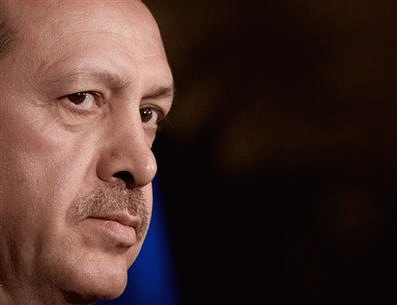By Nicola Nasser*
The eruption of the Syrian conflict early in 2011 heralded
the demise of
What Sreeram Chaulia, the Dean of the Jindal School of
International Affairs in
But in a more in-depth insight it is unfolding as neo-Ottomanism
that is pragmatically using "Islamization," both of Mustafa Kemal Ataturk's legacy internally and
Invoking his country's former imperial
grandeur, Foreign Minister Ahmet Davotoglu had written: "As in the sixteenth
century " we will once again make the Balkans, the Caucasus, and the Middle
East, together with
Quoted by Hillel Fradkin and Lewis Libby, writing in last
March/April edition of www.worldaffairsjournal.org ,
the goal of Erdogan's AKP ruling party for 2023,
as proclaimed by its recent Fourth General Congress, is: " A great nation, a great power." Erdogan urged the youth
of
"2071 will mark one thousand years since
the Battle of Manzikert," when the Seljuk Turks defeated the
Some six months ago, Davotoglu felt so
confident and optimistic to assess that "it was now finally possible to revise the order imposed" by
the British -- French Sykes-Picot Agreement of 1916 to divide the Arab legacy of
the
Davotoglu knows very well that Pan-Arabs have been ever since struggling unsuccessfully so far to unite as a nation and discard the legacy of the Sykes-Picot Agreement, but not to recur to the Ottoman status quo ante, but he knows as well that Islamist political movements like the Muslim Brotherhood International (MBI) and the Hizb ut-Tahrir al-Islami (Islamic Party of Liberation) were originally founded in Egypt and Palestine respectively in response to the collapse of the Ottoman Islamic caliphate.
However, Erdogan's Islamist credentials cannot be excluded as simply a sham; his background, his practices in office since 2002 as well as his regional policies since the eruption of the Syrian conflict less than three years ago all reveal that he does believe in his version of Islam per se as the right tool to pursue his Ottoman not so-"hidden agenda."
Erdogan obviously is seeking to recruit Muslims as merely "soldiers" who will fight not for Islam per se, but for his neo-Ottomanism ambitions. Early enough in December 1997, he was given a 10-month prison sentence for voicing a poem that read: " The mosques are our barracks, the domes our helmets, the minarets our bayonets and the faithful our soldiers;" the poem was considered a violation of Kemalism by the secular judiciary.
Deceiving "Window of
However, Erdogan's Machiavellianism finds no contradiction between his Islamist outreach and his promotion of the "Turkish model," which sells what is termed as the "moderate" Sunni Islam within the context of Ataturk's secular and liberal state as both an alternative to the conservative tribal-religious states in the Arabian Peninsula and to the sectarian rival of the conservative Shiite theocracy in Iran.
He perceived in the latest
"Weakening of Europe and the US' waning influence in the Middle East" were seen by the leadership of Erdogan's ruling party "as a new chance to establish Turkey as an influential player in the region," GÃ �nter Seufert wrote in the German Stiftung Wissenschaft und Politik (SWP) on last October 14.
(Note: You can view every article as one long page if you sign up as an Advocate Member, or higher).





